






Welcome to the Christmas edition of Q Magazine! When the shopping is done, and the decorations are up, make yourself a nice frothy coffee, kick off your shoes and immerse yourself in the wonderful treats we have in store for you.
Our friends at Q Scripts have launched a fabulous scriptwriting competition. You have the chance to have your script developed by a production company and presented to broadcasters. Details can be found on page 17. Don’t miss it!
Sally Lindsay talks passionately and openly about writing the hit Channel 5 show, The Madame Blanc Mysteries, from concept to screen. A Christmas special lights the way for series two which will be aired in January 2023.
We grab an insight into the multitalented mind of Richard Dinnick as we delve into the world of writing gaming scripts like Sea of Thieves.
Sunday Times Best Selling Author, TM Logan chats about his process of writing and adapting a script for TV.
We have so much more just waiting to be unwrapped, and the best of it is, you don’t have to wait until Christmas Eve to dive in.
On behalf of the team here at Q Magazine, I would like to wish you all a very merry Christmas and a prosperous new year.
Diane DIANE TREMARCO Editor.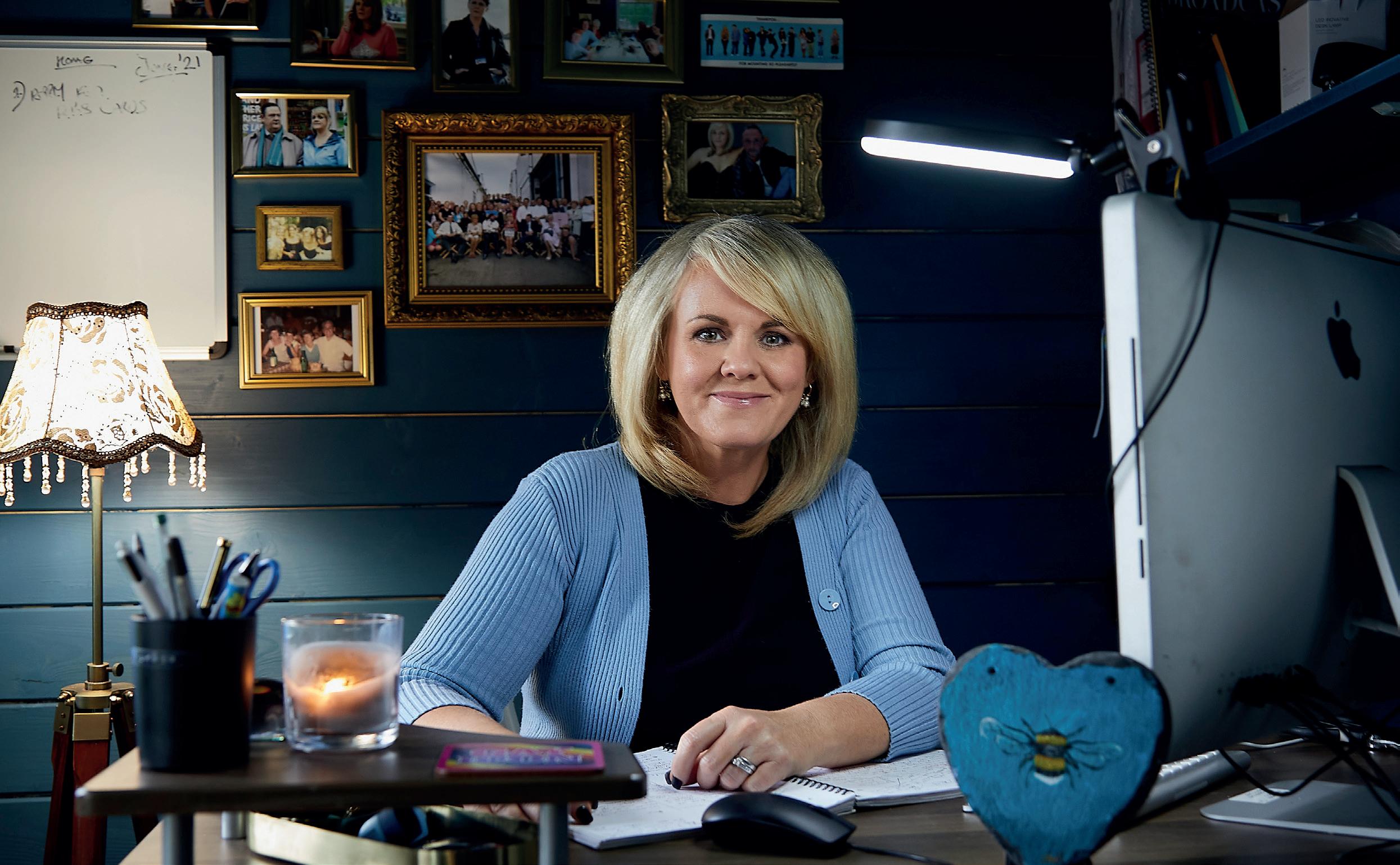
From the initial concept, how do you develop the story - does it come naturally, or does it evolve?
Usually, you get a germ of an idea of what it will be and put it on an A4 piece of paper. Madame Blanc came about whilst filming on the set of Cold Call. Dan Ryan (Cold Call, Mount Pleasant) and I were in a car park in Manchester, freezing cold talking about Escape to the Château. Dan and his wife loved it, and on his recommendation, I watched it. What I loved most about it, was the beautiful setting and the sunshine. I have always been obsessed with that concept of 90s tele; it’s almost like having a warm bath or a glass of wine. It’s like Pie in the Sky, Lovejoy, Boon, that kind of programme where you get the full story in one hour in a place you want to be. I learnt a lot filming Mount Pleasant too. When you watch it, you want to spend an hour with the guys, you want to have a drink in the Dog and Dart, and you want to see Lisa’s and Dan’s kitchen. It’s about being part of something as a viewer, being part of that sunny place feeling like
the cast are your friends.
I had another idea that I had always toyed with. What if something happened to someone you loved and everything you knew and thought was true wasn’t? So that was the concept of Jene (Madame Blanc) when her husband was killed in a car crash. Everything she thought was normal, true and honest was a complete lie. She had to start again, and that was the concept. I brought the two ideas together.
There was another aspect to this story. Me and Steve, my husband, were on holiday in Majorca about five years ago and we got talking to this lovely lady called Jan. She is actually one of the pundits from Dickson’s Real Deal. What a fascinating lady; she is an absolute expert on antiques and in fact, a third-generation dealer. Their family shop was in Mill Hill, and she talked about it with great passion. Jan told us that she and her husband would drive to the south of France every month to exchange goods with other dealers. What is fashionable in Italy is not in England and vice versa, so
they literally swap. Who knew? This all takes place in these little villages in the south of France, so that was my base, my world. Small towns full of antiques and international people. So, three ideas came together, and Madame Blanc was born.
How did you know you could write a murder mystery?
I didn’t; it came as a complete revelation. I knew I could write drama, but I had never written a murder mystery before. I wrote the treatment…
Can you explain what that is for those who don’t know?
You write a detailed plan of what the series is about; The characters, the world, what it is going to be about, and the episode breakdown (about half a page each). It is to give your commissioner an idea of what you are trying to make. That’s the treatment, and I wrote it over the summer whilst filming Still Open All Hours at Pinewood. In between filming, me and Johnny Vegas would sit next to
each other on a trestle table. He wrote his camping programme, and I wrote Madame Blanc. Channel 5 commissioned it, but because of their business model, we needed a partner, and Acorn really liked it but wanted to see a script. I was on holiday at the time, and they wanted the script within a few weeks. As I don’t write murder mysteries, I
started ringing around my writer friends all prolific writers, but everyone was busy. So, I rang Sue Vincent. Sue and I had written comedy together for four or five years, but nothing on this scale. She didn’t even know about Madame Blanc but agreed to come on board and we set about using the formula we had devised on other projects.
I write the beats of the murder mystery, usually about 21/22 scenes, and the family storyline, which is the ‘b’ storyline involving the regular cast. Then we intertwine it. Sue is an over-writer, so she writes far too much of the episode, and we spent about a week trimming and fitting it all together and ended with a finished script. It is an unusual way of writ-


ing as most writers will sit together writing line by line, but we don’t. We do our separate jobs and then come together and basically rewrite it together. It works really well, but we didn’t know it would - we didn’t know we were going to be the writers either! We just took the opportunity and ran with it, and it worked.
We have just finished writing seven episodes and a Christmas special and have fine-tuned our formula. We are both really proud of what we have accomplished.

In the series, there are some frames, integral to the story of a hand in a car window with red fingernails and a cigarette. Is that something you asked for or is the film crew doing that? No, that is me and Sue. Dermot, my director is so integral to this production. He was my director on Mount Pleasant, and I know him very well. When he gets the script, he will ask 1000 questions because he needs to understand it as much as me and Sue do. The details are all on the page, every single aspect is written, and once he understands the concept, he films it and that’s how we work.
So you have full control then? Well, you never have full control unless you pay for it! To be fair, I would say 90% of my concept goes on the screen. I am also on set during filming, so the buck stops with me.
How do you juggle everything? You are a mum, a wife, an actor, a writer, a producer… How do you fit it all in?
I have the most amazing husband. Steve does the
music for all my shows, he did the original score for Madame Blanc, and that’s why it’s so special, it’s a family affair. His band Hague and White are phenomenal. He was asked to do the theme tune for Cold Call, and now it’s pretty much his fulltime job. Although it’s very different to his past, (drumming for The Style Council and Paul Weller’s band), there are parallels, and he really enjoys making music for TV.
He is a wonderful husband and is the main carer of our children when I am abroad, plus he believes in the concept of Madame Blanc so much because he is a part of it. I am extremely lucky to have him, and I couldn’t do it without him.
I think all busy women have to juggle; we are very organised because we have to be. Sometimes it does get too much, then I take a step back and think, it’s only tele. I am not a top surgeon dealing with lifeor-death situations, it’s just tele, and that helps me through, even though I believe that culture is very important in our society. The UK is the best in the world, bar none, at producing drama, yet we don’t shout about it.
I tried to do two things on Madame Blanc. One was to celebrate female writers. Only 14% of writers on prime-time terrestrial tele in the UK are female. It’s a disgrace. Soaps are different, 50% of writers are women, and there is no problem on Netflix. Saying that Channel 5 have been fantastic, they believed in us and gave us a chance for which we are so grateful. The second thing is diversity. I created Madame Blanc to be like a modern classic; you think you’ve seen it before but haven’t. In the second series, we have a lot of gay relationships and diversity, but it’s never mentioned. It’s just there, and I really be-
lieve that’s the way forward in drama. I wanted to normalise what I see every day. I’ve got gay friends who are married, and it’s the least interesting thing about them.
We know Madame Blanc doesn’t speak French, but do you?
No, I’m rubbish! Although, I’m getting better at it. My business partner, Caroline, has a friend who is a French lawyer, so she translates it all for us and makes it in the vernacular.

Madame Blanc has been received really well internationally, but that comes with its own problems because Channel 5 would like us to make it as local and British as possible, and Acorn would like to make it as international and understandable as possible. So as a writer, you are walking a tightrope trying to make it warm, northern, and funny, but you can’t go that way too much because no one will understand it. I remembered something from when I did Wallace & Gromit. Nick Parks fell out big-time with Dreamworks because he wanted to put Eccles cakes in, and they feared no one would understand what it was. I know what a Walmart is, but I’ve never been to one. I still know it’s a big supermarket! That’s always held me in good stead.
In 2008 you chose Carry on Films as your specialist subject on Celebrity Mastermind. Where did that love come from and who was your favourite actor?
I absolutely love Carry On films – I find them really comforting. I can’t really pick one actor but my top four are Barbara Windsor, Sid James, Kenneth Williams and Hatti Jaques. They ARE Carry On to me.
The Carry On concept is the same one that I’ve worked into Madame Blanc, just to tie it in, or anything I do that is light and happy. It’s a concept of a vision of an England that never was, but we like looking at it because it’s nostalgic and looks like an England we used to live in but wasn’t. It was horrible in the ’70s, full of strikes. It was hard the ’80s were hard, but when we look at a Carry On film, we think, ‘Oh, wasn’t it brilliant, wasn’t it great?’. They created a world that didn’t exist and in the same way, I’ve created a town where everyone’s mates. It’s full of crazy characters who all go to the pub at the end of the day and have a drink and a lovely time. That doesn’t exist in any town, ever. Me and Steve share a love of Carry On. When I was doing Mastermind, we had a Carry On question book, we would sit in bed and Steve would ask me questions. I’d have to watch them all again so it was fresh in my head because I don’t have a photographic memory, unlike Steve. Not the general knowledge; that was just lucky. That’s when I met Caroline, my business partner. She was the executive producer in 2008. It’s weird to think that all these years later, we are working together. We have a female lead production company called Saffron Cherry, and the first programme we ever made was Emily Pankhurst: Making Of A Militant.
I believe you and Suranne Jones are the best of friends. When did you meet?
We met on the set of Coronation Street, and we’ve been best friends ever since. Our lives are very similar; therefore, we completely understand each other’s world. Her husband is one of Steve’s best friends; our lives have been so intertwined, and she’s been a great comfort and a wonderful friend to me. I absolutely adore her. We will work together on something one day, it’s just never been the right thing. We were of course, due to work together on Scott & Bailey but as we approached filming, I fell pregnant with the twins and couldn’t commit to a lead role. I ended up playing Suranne’s sister on the show.
The Madame Blanc Mysteries Christmas

Special airs on Thursday, December 22 at 9pm on Channel 5. Season 2 begins on Thursday, January 5 at 9pm on Channel 5.


It wasn’t the first game console or even the first console to accept cartridges. The Atari 2600, as it came to be called, did what no other system could: when wired up to a television set, it brought real Atari arcade games to your living room. Pac-Man, Space Invaders, Star Wars: Empire Strikes Back (the one with 999 levels), you know the ones I’m talking about?
It’s the 1980’s, and you’re obsessed with these games. This is where Richard Dinnick’s journey begins. Evolving through the years with the SEGA Mega Drive and Sonic the Hedgehog - I can still hear those rings dinging away - then onto PlayStation One, amongst various other consoles. Today’s choice of weapon is an Xbox, on which Dinnick enjoys a variety of games, including ones he is writ-
ing, like Sea of Thieves.

A far cry from his journalistic background, Dinnick is now a writer of scripts, novels, and comics. He writes drama scripts for franchises such as Doctor Who, Stargate, Sherlock Holmes, Sapphire & Steel, and Space 1889.
BBC Children’s Books published his first novel Alien Adventures in 2010, and he has since gone on to write books and short stories for Penguin UK, Titan Publishing, Black Library and Snow Books.
“I’d always written fiction: somewhere, I have the first book I ever wrote, which was called Destined for the Stars, and I wrote it when I was about 14 or something. It’s all by hand and utter rubbish, but
it was ecological - before that was a buzzword - it was about an earth that had been flooded, and cities existed on super-structure oil-rig type things. It was almost totalitarian, but benign totalitarian (if that’s not a total oxymoron).”
He has also written comic strips for IDW and BBC Magazines, with his first original graphic novel published in 2013. I haven’t even mentioned script writing for Thunderbirds Are Go! and Lost in Space. This guy makes me tired just reading what he’s done.
Let’s not forget his other passion - Gaming.
For the first three months of this year (2022), Dinnick worked on a game called HyperSpace,
“IT’S
HAS NEVER LOST THAT INNOCENT,
WHICH IS CLEARLY KEY TO HIS TALENT AND THE CREATIVE CIRCLES HE WORKS IN.”
which, unfortunately, will not be released due to a lack of funding. The concept was that there would be multiple races and levels to work your way through. The elite squad of narrative designers came up with the different species involved, including their history, their cultures, and their languages to a certain degree - which Dinnick found fascinating,
“I love that kind of world-building. I get very into that and extremely carried away! There were already eight existing species (or there about), and we were fleshing out other species and spent time coming up with ones that played off the existing ones in the IP; we were going in and creating cultures for those creatures and alien races.”.
As a narrative designer, he explained how there are many things to consider when coming up with new ideas,
“Why did they exist? How did they evolve on their planet? We were doing all that kind of thing. Why would they evolve in such a way, and therefore what environment would they live in - we had a scientific advisor, and it was great! She was fab. We’d sit and discuss what living next to a wormhole would be like, and the gravitational effects of that, or what sort of creatures might be living in the ionosphere of a star.”
It’s like Dinnick has never lost that innocent, explorative mindset, which is clearly key to his talent
and the creative circles he works in. He expanded further, saying that it’s not a solo task and that there’s a massive team involved every step of the way,
“Even if you’re writing prose, or a book, or even if you’re writing journalistically, you’ve got a proofreader, a sub-editor; it is always a team effort to get something written onto the page or the screen.”
Many teams are involved with the Sea of Thieves game, where gameplay elements are discussed months in advance; however, releasing new content every month isn’t always straightforward. Dinnick was working on December material in October, for example.


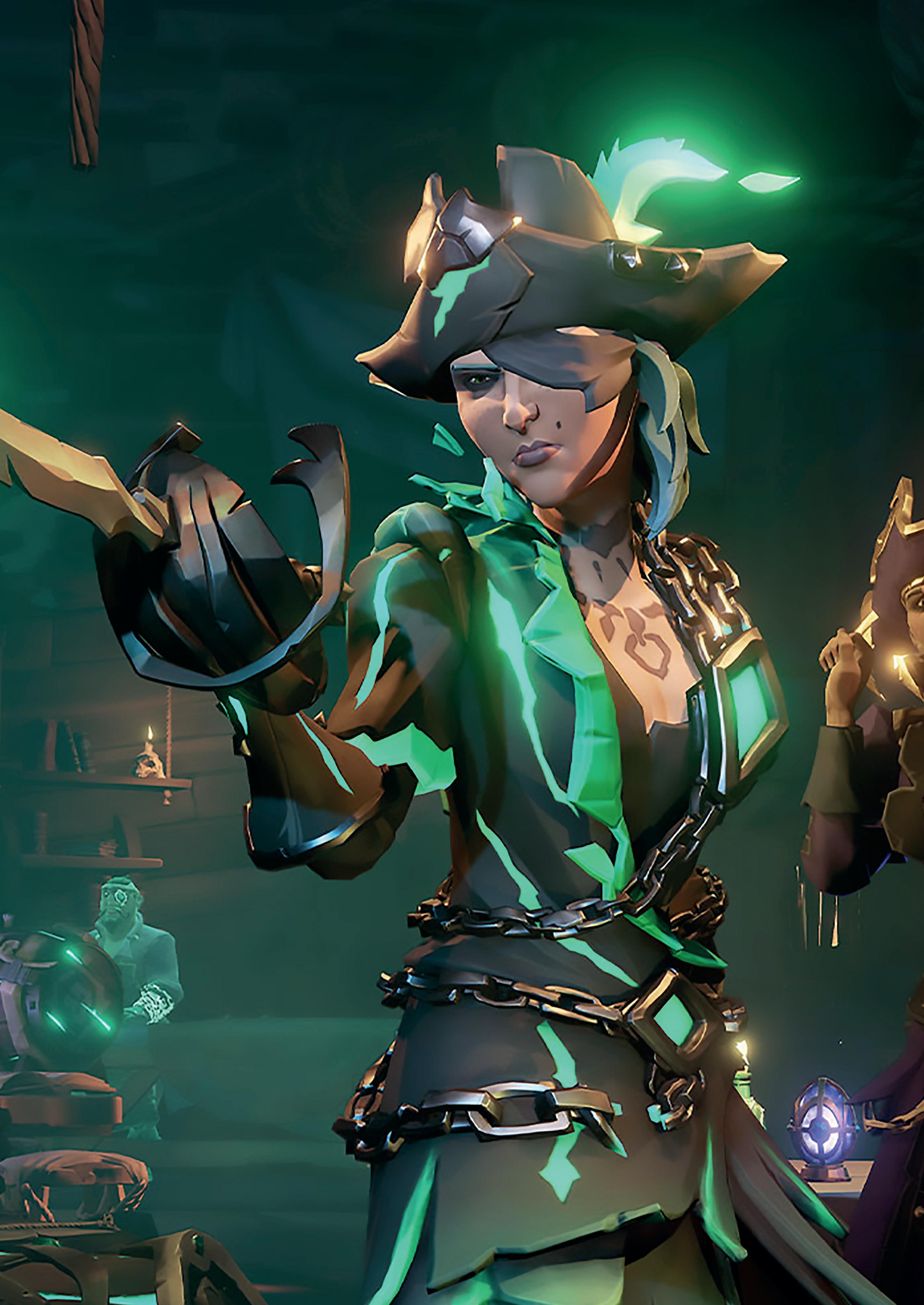
Writing tasks start with the narrative and story, which will be mind mapped with Games Designers (people who design gameplay, not animation), and they will lead the conversation,
“They will say, ‘I want to do this. How can we make that work with the characters and situations we’ve got? Where is the heart? Can we find a heart for this and good character moments etc.?”
When looking at old-school games on the Atari, for example, there was never any heart, it was purely function, so Dinnick and the team work to inject personality and depth in the game, not just in terms of graphics, but in terms of the story itself. The player has to want to play the game, especially today, where games are on a completely different level to Tetris and Space Invaders,
“If you think about Red Dead Redemption, Far Cry, or Sea of Thieves, that kind of thing, where you’re immersed in a world of different characters and possibilities, games designers have realised that actually you need a core lore that allows you to then build into that world, the characters, and the scenarios”.
Sea Of Thieves, like most online games nowadays, has monthly updates, and so it is forever progressing and changing. Certain games have scripted responses by actors, like in Jurassic World Evolution, where you can hear Dr Ian Malcolm talks you through the game, which would be organised by a Voice Director in the studio. Quests and all the elements would be created, artefacts that are found, different enemies, different weapons… the list is endless. Dinnick explained how the team keeps on top of everything,
“We use text trackers that have every piece of dialogue and every name of an item, all the banners etc., when you achieve something or do something e.g., “this treasure chest has been found” or “you have achieved this rank”. It is quite a different kettle of fish writing games in comparison to doing a lot of other things.” Dinnick is working at Microsoft with the Xbox Games Studio for the foreseeable future. The job itself is full-time and very intense, so it needs to be his main focus,
“I have to attend things like the voice records, the gameplay run-throughs - which is where one of the game designers will be playing a version of the game before things are dropped in, and we do that almost on a daily basis. For each adventure, we also have stand-up meetings where we’re just going through, making sure everyone is on the same page from coders, technicians and engineers, all the way up to the studio head.”
Discovering that there are approximately 150 people involved in creating, designing, building, and playing the game to get it to retail was incredible. It’s not all about the game design but about regular updates, bug fixes, and time-sensitive updates.
This intense process is admittedly a very different way of writing, and we wondered if Dinnick was drawn to one writing style in particular. Also, if he could wave a magic wand and have the dream job, what would it be?
“I think it is amazing to be involved with a company like Microsoft and have all these games to work on. I think something like Disney would be ideal for me because they have MARVEL and Star Wars, and they’re kind of involved with Doctor Who as well. They have comics, books, TV shows, movies and gamesthey have everything that I like to dabble in. I would love to do James Bond and Star Trek, and then I’d have the magical circle of things that I absolutely adored growing up.”
Dinnick is currently developing several TV ideas – one in conjunction with BBC Writers’ Room and CBeebies. With regards to gaming at home, Dinnick plays Mario Kart with his family and loves playing Myst with his wife on the PC. Obviously, everyone in the family is dedicated to gaming, just like Dinnick. We can’t wait to see where his journey takes him next.
Hardback
Publisher: BBC Books ISBN13: 978-1785942495


Publisher: Titan Comics ISBN13: 978-1785868726

Paperback
Publisher: Titan Comics ISBN13: 978-1785866906
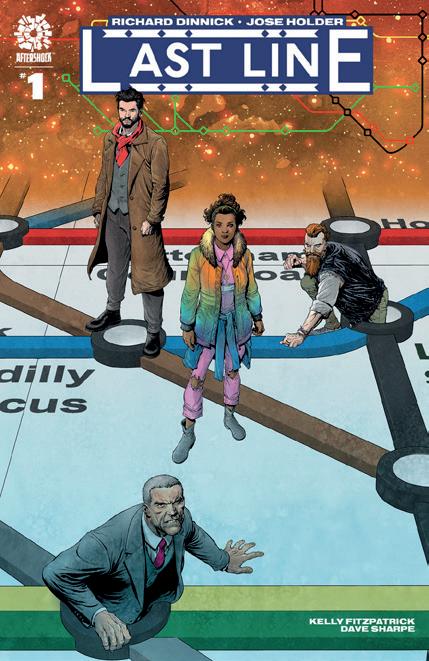
Paperback
Publisher: Legendary Comics ISBN13: 978-1681160979
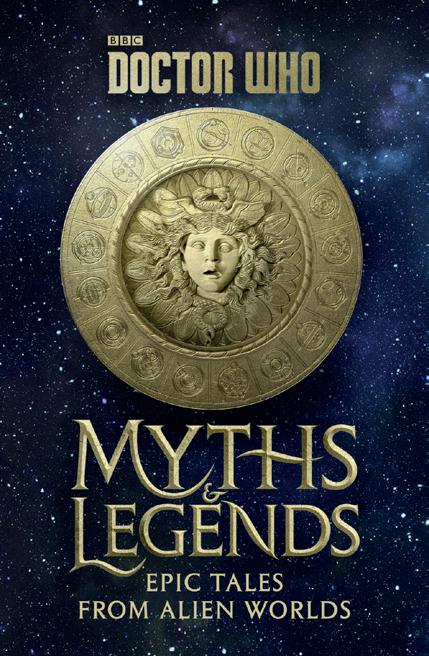
Paperback
Publisher: Penguin Group UK ISBN13: 978-1405922562
Kindle
Publisher: AfterShock Comics

C.S Lewis and the world of fantasy captured the heart of TM Logan as a young boy, so much so that it influenced his career choice. Today, Logan works out of a custom-built cabin at the bottom of his garden, writing his next best-seller.
TM Logan was a national newspaper journalist before turning to novel-writing full-time. Establishing a career as the Daily Mail’s Science Reporter, Logan covered varying stories, from new technology to the environment, but that wasn’t where his heart was at.
“I enjoyed being a national newspaper journalist, but it didn’t leave much time for anything else, particularly writing thrillers. The first book I wrote was never published. It was a thriller / Michael Crichton-type book with some strong science/

tech elements. That may be why it didn’t get picked up by anybody. That was when I realised I should focus on one genre rather than trying to straddle two.”
Logan’s books have sold more than one million copies in the UK and are published in translation in 22 countries worldwide. But where does the inspiration come from? Do we presume personal experiences will form the basis? Logan expands,
“Yes, that is often the case. For example, The Catch is a book about a guy whose daughter brings home a perfectly nice boyfriend – or so it seems. It’s an extrapolated version of random thoughts I’ve had about my daughter in the past.
The Curfew is a story about parents Andy and Laura. They tell their son Connor that he can go out with friends to celebrate completing his exams, but
he must be home by midnight. As parents, we all have that thing where our teenagers have started going to bed later than us, and we wake up in the middle of the night and think, ‘I wonder if they’re home yet?”
It’s one thing to have an idea for a book or think of something that many people can relate to, but we wondered how Logan physically translates these random ideas into a novel,
“I’d normally spend about six weeks kicking ideas around, and if there’s a persistent one and I keep coming back to it or thinking about it, I’ll tend to zero in on that one. I’ll then start to write notes about characters or events in one big word document and spend time thinking about the story arc and the people. Next, I’ll start putting words down on the page, figure out what the key points in the
story will be, and set off from there.”
We wondered if there was ever a time when essential pieces of the plot were missed out or overlooked. Logan explains:
“That does happen. There are certain things about characters, for example, that I’ve had in my head, and you think that it’s in there, but you realise you haven’t written it down. That certainly happened the most with the first book ‘Lies’, as that went through three or four edits with my agent and another big editing process with my editor. That was largely down to me learning as I went along. You have at least five pairs of eyes on it, and they point out all the missing or implausible things.”
Difficult conversations are always had during the editing process; whilst Logan is used to it, it can still be tough to hear. He explained that even his new release, ‘The Mother,’ has already accumulated ten pages worth of editors’ notes that need exploring,
“I have things to fix things that don’t work. It’s never an enormous plot hole; it tends to be things that can be improved, e.g., that person wouldn’t have done that, or that doesn’t ring true, or that’s too long-winded.”
We learned that Logan writes very methodically, starting in the early weeks of January, with a submission date of 1st June. That gives him six months to write the first draft, however like with many things, Logan struggles to balance deadlines and work with his personal life,
“I’m motivated by deadlines; obviously, the nearer it gets, the more motivating it is. May is always a bit mad for me, pushing and pushing and working every day of the week and at weekends. If I can avoid that and spread it out slightly more than usual [by starting around Christmas time instead], that would be preferable.”
His dedication to the craft has paid off as ‘The Holiday’ was a Richard & Judy Book Club pick, spending ten weeks in the Sunday Times paperback Top 10 and selling more than 400,000 copies. It was made into a four-part drama for Channel 5 starring Jill Halfpenny (Coronation Street, Eastenders) and Owen McDonnell (Killing Eve), now available on Netflix UK.
“I did have a good chat with the screenwriter, Michael Crompton (Silent Witness), at an early stage and every time he had a script/draft prepared, he would send them to me for my comments.”
For those that aren’t aware of how the process works, in most cases, a screenwriter will write a script based on the book and then it is run by the original author for approval. Scriptwriting is a very different discipline from book writing. We were keen to know if the characters from the book would be well represented on screen,
“For the most part, it was very close to what I had in my head - Jill Halfpenny was just perfect. She was fun and, in terms of height, age etc., perfect for the role. Now I can’t think of that character without picturing her. Her husband in the book is a tall, funny, Irish guy, and I thought that Owen McDonnell did that well too. Some of the other characters had slight deviations from the book; one of the women is originally American, and she’s come to live in the UK, but in the TV show, the character is originally Swedish. It didn’t significantly affect the overall narrative and the story.”
As fans of thrillers and novels, we are all too familiar with characters having their appearances changed when they are transformed on screen. A screenwriter will rarely hit everything in line with the original character portrayals. Logan reflected how “in the book the daughter was blonde, but on the show, she had dark hair”, a minor detail that was realistically never going to affect the outcome of the storyline.
As most writers will know, the chance of having your book be selected to become a TV show is slim, so when Logan found out that ‘The Holiday’ was optioned, they celebrated - but quickly realised the rest was out of their hands. Hence, they crossed their fingers and hoped for a successful show. Originally airing on Channel 5 and now being held on Netflix UK, it’s safe to say it was a success.


“I love what I do, but you always get that thing where you’re wondering whether you’ve gone offpiste with this one. I tend to get a third of the way through the first draft, where the initial adrenaline has worn off, and I realise I can’t change my mind now and start again because I’ve got a deadline to meet.”
Whilst Logan has had many successes with his novels, he keeps his feet firmly on the ground, never taking what he’s achieved for granted. He always wants to better his writing as he moves from novel to novel. When we asked him where he saw himself in ten years, Logan laughed and admitted he had recently had this conversation with his wife,
“My wife says, ‘You’re not going to stop work, are you? You’re just going to carry on, and I will carry on. I’ve got six books out at the moment, and it would be great to have 25-30 books out in the next ten years. You look at Stephen King’s books and how long he’s been going for, how many books he has written, it’s crazy. I think having a long list of books like his would be brilliant.”
‘The Mother’ is TM Logan’s next release and will be on sale in 2023. It’s about a woman wrongfully convicted of her husband’s murder who emerges from prison years later determined to find out who framed her.
‘The Mother’ is available to pre-order now: https:// www.amazon.co.uk/Mother-up-all-night-thrillermillion-copy-bestselling-ebook/dp/B0B6ZXR2J5
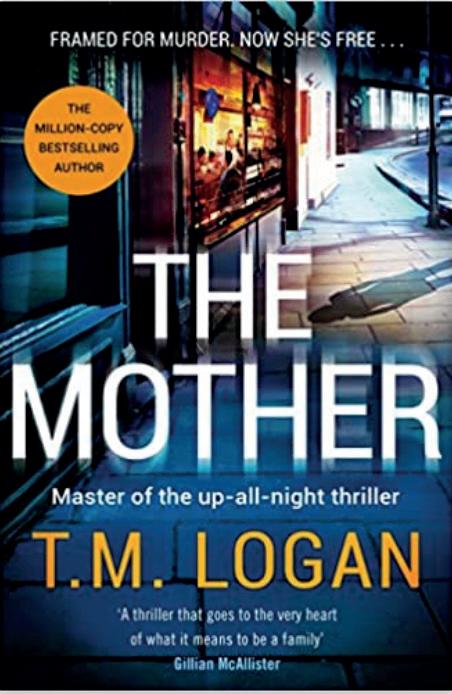
If there is a title you would like to order we can generally get customer orders within 24 hours, it’s not unusual for a book to be ordered at 4:30pm and be available by 10am the next morning. Books can be ordered over the phone or online.

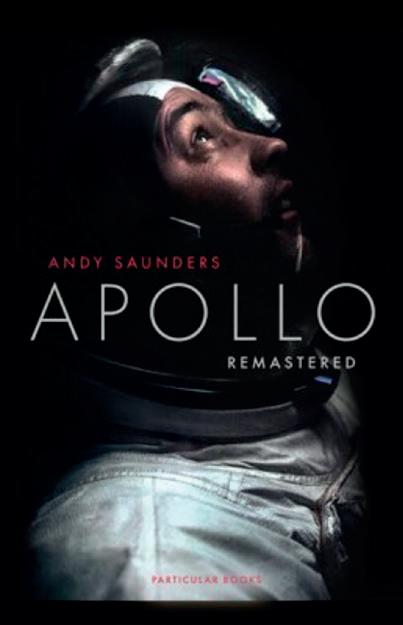
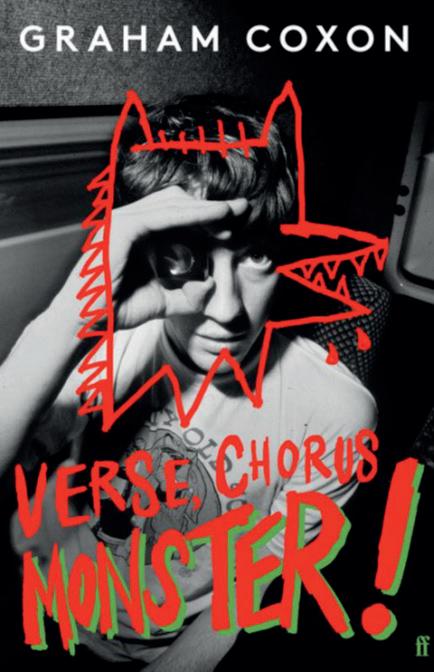
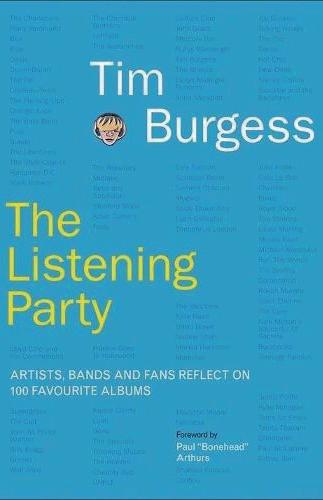
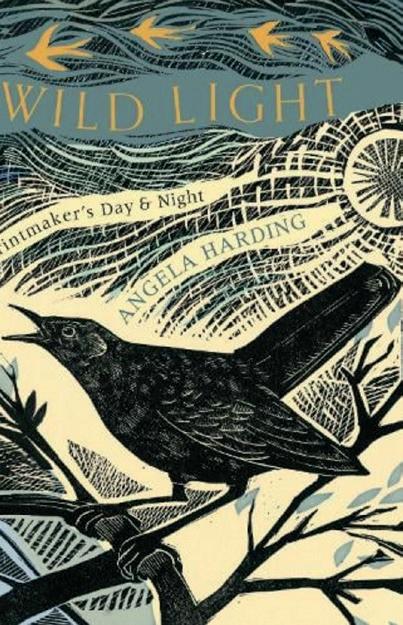




We’ve also created a real buzz around the Wirral with our fantastic ‘Author Events’ and ‘School Events’; where you get the opportunity to meet your book heroes and maybe get a signed copy and photo.




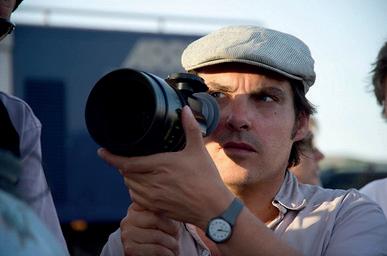
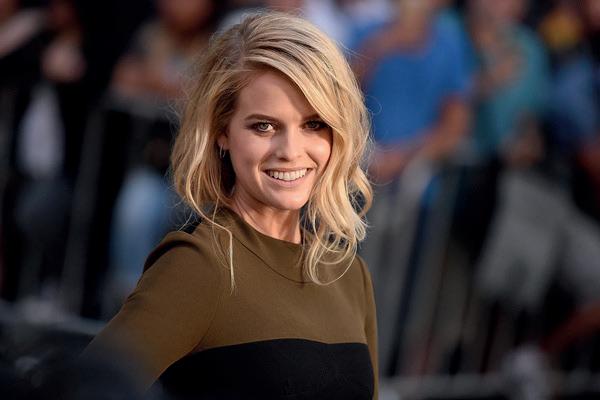





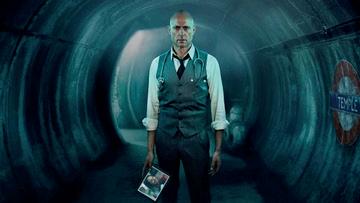
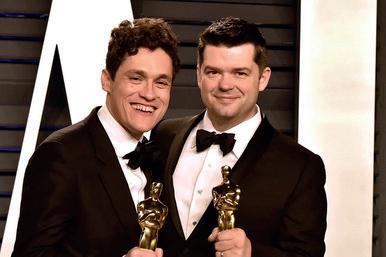
Do you come from a literary background?
No, not at all. I was the only one in the family to have a library card! I have an uncle who is a self-published poet, but that was only recently.
Who were your favourite childhood authors?
One of my favourites was Jaqueline Wilson, and when I graduated from university, she was the woman who handed me my degree, so that was a fantastic moment for me.
I read a lot of Harry Potter, as did most people my age when they were younger.
Did you enjoy poetry as a child?
I didn’t read poetry as a kid – I remember reading some Michael Rosen; I really liked his chocolate cake poem. I remember doing poetry at GCSE, and I always dreaded it. It wasn’t the kind of poetry I wanted to read, and I didn’t like analysing it - it took the fun out of it.
Tell us more about the inspiration behind your first book, Scraps.
I find myself writing odd bits of poetry down here and there, and I did a few open mics pre-covid which were well received. When covid hit, me and my partner really liked the community spirit that was going on – it was obviously a bleak time, but people were showing their best sides, and so I did a poem about that. My partner is a filmmaker and made a film to go with it. It ended up on BBC Breakfast and got quite a lot of attention. It was called A Kingdom United.
As time went on, I found that I had collected a lot of poems so I approached a publisher and asked if I could publish a book, he said yes, and that was it really, quite bizarre.
How do you write your poetry? Do you have a strategy?
No. They are just notes on my phone, thoughts that pop into my head. Sometimes I write one or two lines that I put into something else; I don’t have any structure. It’s pretty chaotic really, I always wanted to write a novel, but I have ADHD, so I struggle with focus and attention. I found that poems are a solution because I can tell a story in a few minutes. I have to do something as soon as it pops into my head, or I won’t do it.
your local dialect?
There are certain words that I would abbreviate in the poems that are in my dialect, and then there are others that I probably wouldn’t as they wouldn’t make any sense to read. It’s finding the middle ground.
Some of my poems are more Northern than others. If that makes sense? The ones reflecting on my childhood tend to be written more in my dialect.
Your poetry is relatable, down to earth, and described as poetry for the people. Do you draw on your own experiences, past and present?
And that was what I always wanted to do; I really wanted my poetry to be relatable to everyone. When I was growing up, I thought poetry was not for me. I went along to a few open mics and just watched people perform, seeing how it is accessible, I started wondering why that can’t be on the page as well.
I wanted my work to be funny but real and appeal to people who might not like poetry. If you look at Shakespeare, how he speaks is how they would have spoken then, so why shouldn’t there be that now? We don’t all speak in the queen’s English.
Who inspires you, and do you have a favourite spoken word and written word poet?
My favourite poet is Toria Garbutt who supports John Cooper Clarke. She writes in her Yorkshire dialect. Toria helped me with my book, Scraps; she just reached out to me online and offered her help.


INTERNATIONAL BEST-SELLING KIWI CHILDREN’S AUTHOR AND MUSICIAN, DEANO, AKA MR YIPADEE, HAS TOPPED THE UK, NEW ZEALAND AND AUSTRALIAN CHILDREN’S BEST-SELLERS CHARTS ON NUMEROUS OCCASIONS.
HIS ALBUMS REACHED THE TOP SPOT IN THE UK CHILDREN’S ALBUMS BEST SELLERS CHARTS AND HIS DEBUT BOOK ‘JINGLE BELLS, RUDOLPH SMELLS’ WENT TO NUMBER ONE IN THE NEW ZEALAND BEST SELLERS CHARTS AND SOLD OUT OF THREE PRINT RUNS IN AUSTRALIA THREE WEEKS BEFORE CHRISTMAS. ‘NEE NAW THE LITTLE FIRE ENGINE’ SPENT THREE CONSECUTIVE MONTHS IN THE BEST SELLER CHARTS AND HE HAD THREE BOOKS IN THE SAME WEEK IN THE COLLINS BOOKSELLERS TOP 10 BEST SELLERS LIST IN AUSTRALIA IN 2018.
You come from a musical background, did your year in Japan inspire you to pursue a career writing children’s music?
Yes, absolutely! I had a love of music from a very young age. When I was about seven, my dad said that when I got better on the guitar than him, he would give me $100! I loved it, and within a few months, he bought me my own guitar with that money.
When I went to Japan, I didn’t have a job and went door-knocking on day two. That day, I picked up work teaching English to children. I did it all through music by making up songs for each lesson and so it began.
Your performance at Glastonbury wasn’t very long after being made redundant; how did it come about so quickly?
It was simply a case of doing loads of shows anywhere that would have me. One of the organisers at Glastonbury then got in touch via Twitter asking if I would like to perform. I was so excited that I didn’t sleep for days. Such an iconic festival, and to
be asked to perform at it was amazing.
Your debut album, ‘The Animal Choir, ’ shot to number one on iTunes children’s charts after your Glastonbury gig. Was this the catalyst for future albums, or had you always known you would write more?
It was the other way around; I toured a lot of small venues around the UK, gaining a bit of support. We had a pre-order on the release, and people kept supporting and ordering. It was sitting at number two until its release, and then at midnight, it went to number one and stayed there for a week. It was so crazy to see the album at number one followed by Now That’s What I Call Disney and a CBeebies album. They were the catalyst for being asked to Glastonbury.
In 2016, you released your debut children’s book, ‘Jingle Bells, Rudolph Smells’; what made you want to write rather than perform?
After Glastonbury, a big TV show in New Zealand flew to the UK to film an interview. At that time, my parents had visited with a book called The Wonky Donkey. At that point, this book had been
a huge seller in New Zealand and Australia. I was flying home to New Zealand to do a tour and chatted with Wonky Donkey’s author and performer, Craig Smith. We decided to do a joint tour. While touring, Craig said to me, “your songs would make great books”. After finishing the tour and flying back to the UK, I reworked some of the songs so they would make stronger book stories and Craig passed them on to Scholastic. I was slightly over-excited when I got an email from them a couple of weeks later offering a book publishing deal!
Where do you get the inspiration for writing your books and songs, do you draw on your own childhood experiences?
I take things that kids love and combine them with things that are funny!
For example, Kid’s love Dinosaurs + Farts are funny = Stink-o-Saurus, a tiny little dinosaur that roars from his rear end.
Do you have the whole story in your head when writing, or do you have the idea and see how it develops?

Always an idea that develops. The biggest tip is to get the idea down as quickly as possible, ignoring any mistakes etc. Once you have some thing rough, keep reworking it until it is clear, simple and makes sense.
How long does it take to write a book versus how long does it take to write an album?
Most of my songs are books, which take a few months. I usually start with an idea and look at it each night after the kids go to bed. I keep reworking it and trying different things until I feel it works as a fantastic story. As I’m writing, I’m also making sure it has a catchy chorus that the kids can sing along with.

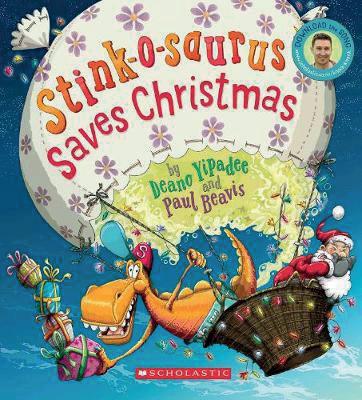


Which do you prefer, book, albums or live performanc es?
I love all of them and creating YouTube videos as well. We have a studio at home and release new videos each week. They are all amazing for different reasons. It’s fun to escape into, though and write books and songs. Seeing them come to life in the publishing process or studio is fantastic. Seeing hundreds of kids and parents at shows singing the words and laughing along is price less. It’s truly amazing to be a part of.
Can you take us through a typical day when you are writing, what time you start, how long you work, etc….
For writing, I like to do it when the kids are asleep. I always wake up a few hours before the rest of the family, so those moments are fun to spend in my head. If I’m not away touring, when they wake up, my wife and I usually go to the gym and then come home and work on filming stuff, booking shows or writing. As an idea is getting closer to a finished draft, I write anytime (day or night) as it’s fun to keep reworking stuff and find ways to make it better or funnier.
When I go on tour, I do a couple of shows per day and then move on to the following location to repeat the next day. It’s full on as it’s early starts, driving to the venue, fast set up, high energy show, meet and greet signing, pack down and repeat for the next show. I will typically do 30 shows in three weeks. Needless to say, I’m ready for a little nap by the end!
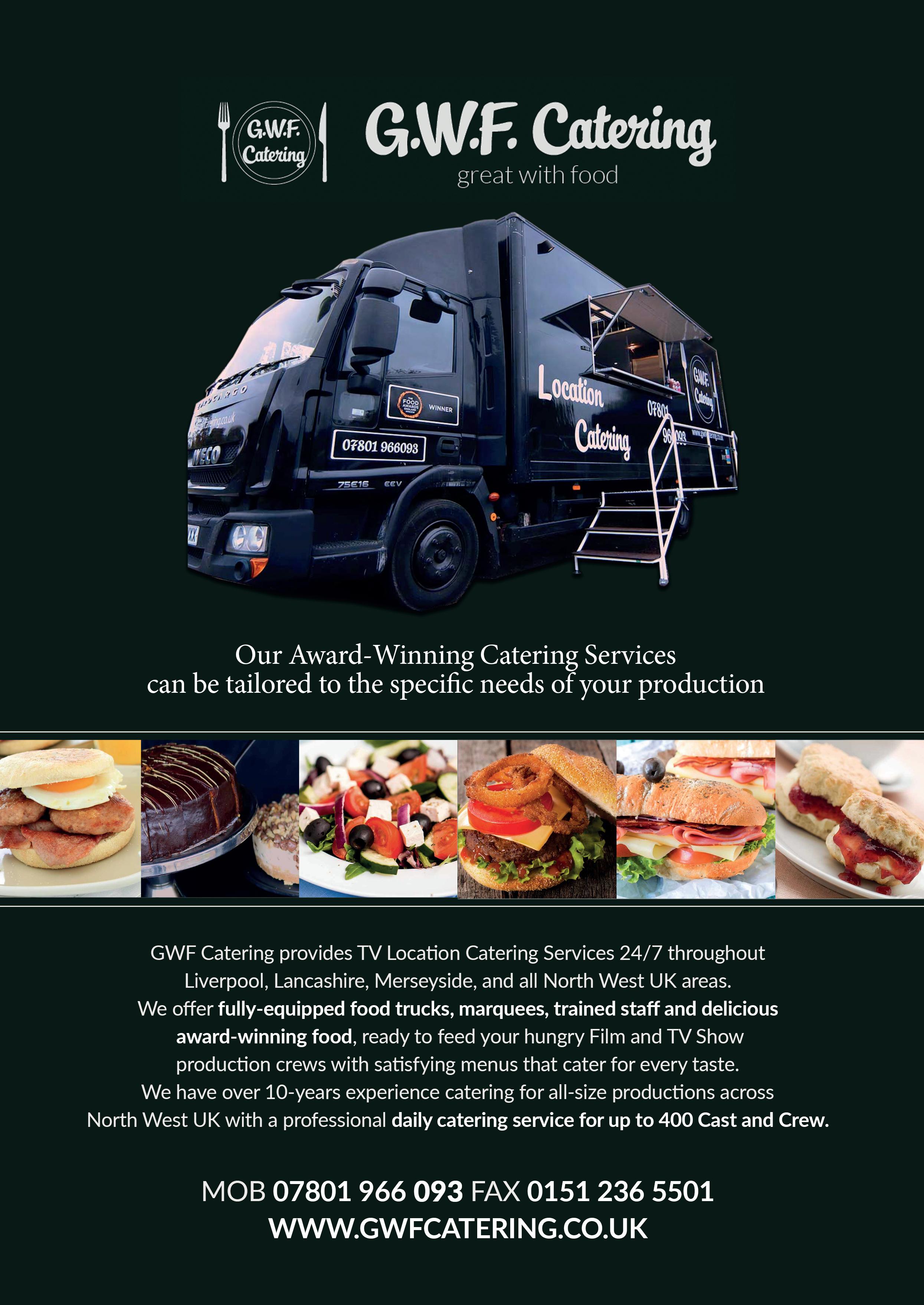 JAMIE SADLER WRITER
JAMIE SADLER WRITER
How did you initially make contact with the production company?
After a chance Twitter encounter, actor Celyn Jones took a script of mine to them to propose it as the ideal next step on their journey and something they’d be perfect for. I first met with the team, along with Cel, on the morning of Queen Elizabeth II’s platinum jubilee. They pitched us with their vision for the film of the script. Their enthusiasm and warmth were inspiring, and I was excited to have an actor of Cel’s pedigree involved.
Did you already have work to present to the production company, or did you devise a new draft for analysis?
I wrote the first draft of this script as the final submission from a Screenwriting Masters (I accidentally stumbled into), having finally made it to University at 36, with a brand new baby in the house. The first draft was submitted to BBC Drama Writersroom, coming in the top 4%, and has gone through many drafts and iterations since, looking for the right team to bring it to life.
How often do you write? Do you have a structure in place, or do you write when you can?
I’m up at 5 am every weekday, always exhausted, even when I’ve decided to take a day off. With a cup of tea, and the dog curled at my side, I get about an hour to myself. Then real life comes a-knockin’, and the world needs me again.
Tell us about your journey to date. I scraped through my GCSEs with minimal prospects and was only really focused on an imminent music career, reluctant to materialise. I’ve since worked the myriad of jobs I managed to get rather than anything I was aiming for. Having written a spec sitcom pilot, and submitted it to the BBC, I slowly realised that having no dialogue in the first 13 pages wasn’t going to fly, and I should probably learn how to do the thing I was, evidently, struggling to realise. Being back in the classroom finally felt right. Giving and getting
critique for our work was amazing, and it felt great being back in a band.
The team have been so supportive and encouraged me to keep the story I was compelled to tell while making sure their vision has a voice, and I’m 100% here for the journey with them.
How far along are you with your current script, and can you tell us a little bit about it? For example, what genre is it? Is it a film/ theatre/tv script etc?
The feature script we’re developing is a boxing drama set in a North Wales border featuring a diverse set of characters, with an LQBTQ+ protagonist.
When did you begin writing and was it always scriptwriting or other forms?
I’ve always wanted to play a role in telling stories and have done so through various forms.
I’ve acted for the BBC, I wrote songs and performed in several bands, having stood on stage while members of Elbow were serving drinks at the bar. I’ve written and performed stand-up comedy around the northwest with varying levels of success and disappointment and even had a foray into Canine Psychology. Even the dog stuff was to try to communicate the story of how a dog’s life could be better if their human companions made some changes to their routine. The big problem with all of these was performance anxiety and being judged directly. The brilliant thing about screenwriting is that I’m seldom there when my work is consumed, and then people have usually found a way to be kind about it by the time I receive their reaction to it.
Who would you say is your biggest influence in the industry?
Sharon Horgan is an absolute genius. Catastrophe, written with the human embodiment of a lovely cuddle Rob Delaney. That show is exactly what I wanted to write and how my friends and I have always communicated, love wrapped in a thick layer of bile and barbed wire. Bad Sisters was also close to perfection, and although my brain is yet to figure out how to write TV, it’s an arena I hope to be invited into.
Andy escapes prison in 1966 in the film Shawshank Redemption. However, the poster covering the tunnel was of Raquel Welch from a movie released in 1967
Although Dallas Buyers Club was set in 1985, they used a Lamborghini Aventador which were built in 2011.
Despite Braveheart being set in the 13th century, during one of the great battle scenes, a white van is clearly visible, parked up.
During a scene in Gladiator, set in Roman times, a flipped over chariot reveals a gas cannister underneath
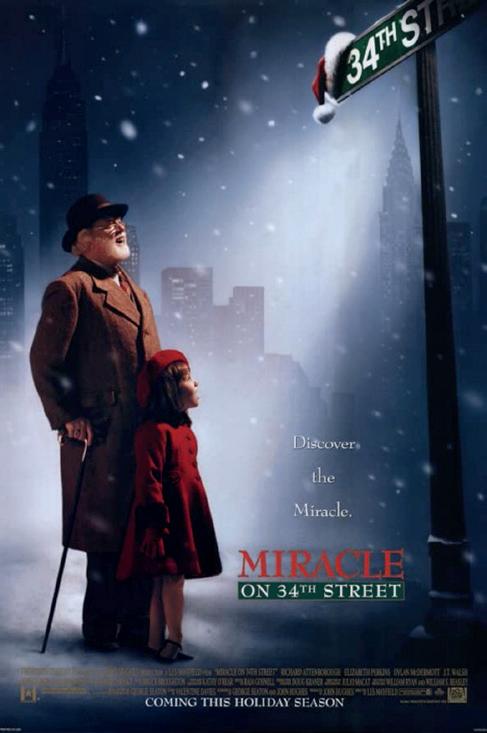
Let’s face it, Christmas wouldn’t be Christmas without Jason’s encounter with the iron man, Medussa and the skeletons.

A true family favourite.

Kris Kringle, played by Richard Attenborough, stands in for a highly intoxicated Santa at Macy’s Thanksgiving Day Parade, leading to him working a regular Santa spot in their store in Manhattan. Everything is going well until he begins to tell everyone he is the real Santa. A court case ensues to determine if he is the real Santa, as he claims. Do you believe in Father Christmas? Well, grab some popcorn, turn the lights low and answer that question again once you have watched the film!
After accidentally arriving at the North Pole as a toddler, Buddy, played by Will Ferrell, is raised as a Santa’s Elf. He always knew he was different, so he went on an adventure to connect with his real dad, Walter Hobbs, played by James Caan.
Unsurprisingly Walter is reluctant to have anything to do with Buddy and his elf ways until a DNA test proves he is Buddy’s biological father. The cynical businessman tries to get to know Buddy and his childlike antics, resulting in a hilarious, festive film.


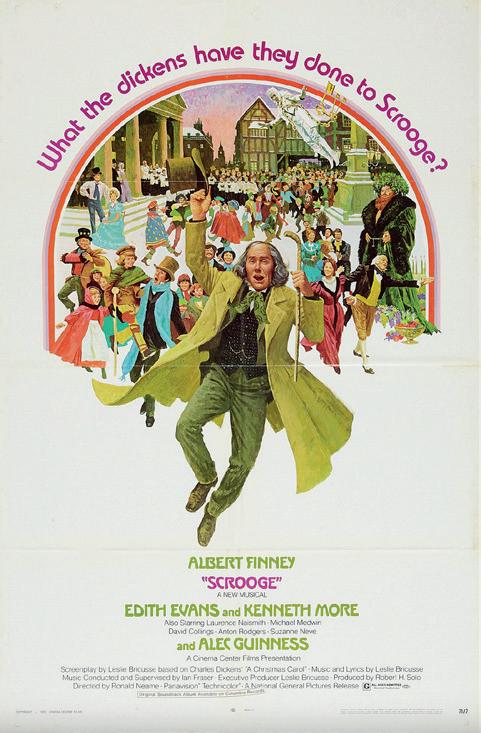
Based on the book “A Christmas Carol” by Charles Dickens. Screenplay by Leslie Bricusse
Singers Bob Wallace (Bing Crosby) and Phil Davis (Danny Kaye) help sister act Betty (Rosemary Clooney) and Judy Hayes (Vera-Ellen) escape from their landlord. After learning their Commander from World War 2 was in financial difficulty with his rural Vermont Inn, the two men invite the sisters to perform in a musical extravaganza, putting General Waverly’s (Dean Jagger) Inn back on the map!
A romantic comedy featuring the lives of 8 different couples, all dealing with aspects of their love life. Their sometimes loosely connecting stories cover the five busy weeks leading up to Christmas as we follow the highs and lows of their complex relationships and views on love. In one story, the newly elected Prime Minster, played by Hugh Grant, falls in love with his secretary, played by Martine McCutcheon. In another, the seemingly happy marriage of Harry and Karen, played by Alan Rickman and Emma Thompson, portrays a man struggling with his feelings for his attractive secretary. Tissues at the ready.
Macaulay Culkin, who plays Kevin McCallister, steals the show in this 1990’s festive offering. The night before the whole family travel to Paris, Kevin is naughty and is sent to sleep in the attic as punishment. He wakes the next day to find the house empty, believing his wish came true about not wanting a family.

All is well until two would-be intruders, played by Joe Pesci and Daniel Stern, try to gain access to the McCallister home; Kevin embarks on a one-boy mission to stop them, resulting in hilarious encounters and memorable scenes.
A classic tale where Dickens portrays Ebenezer Scrooge, played by Albert Finney, as a penny-pinching miser who treats everyone, particularly his employee Bob Cratchit, played by David Collings, appallingly.
That is until his deceased business partner Jacob Marley, played by Alec Guinness, visits him as a wretched ghost, begging Ebenezer to change his ways before it’s too late. He explains that three ghosts will visit him before waking up on Christmas Day, a remarkable Christmas story with a solid moral theme.
James Greenslade is a partner in the Media team at SMB. James advises producers, financiers, distributors, broadcasters and talent on all aspects of film and television production finance and

distribution. He regularly works on deals with most of the major players in these industries and has a close day-to-day familiarity with the various structures used and the commercial terms to be secured. He has specialist expertise in film and media finance and fundraising and advises on all aspects of EIS and other film finance structures.
James also advises traditional print, online and music
publishing companies on all aspects of their businesses including content creation, rights exploitation and other commercial arrangements.
In addition, he advises on joint ventures, acquisitions and other corporate and commercial transactions in the media sector generally. James also lectures at the Met Film School.
Based in London’s West End, SMB are recognised in the legal press and the wider industry as leaders across a range of practice areas.
From their civil liberties and criminal roots in Soho to the full-service law firm they are today, their empathy and

tenacity have always set them apart.
The entertainment lawyer business is quite a complex web, which includes a marathon of contracts and paperwork, data collating, speaking to numerous people daily, and ensuring you don’t get anything wrong.
“The entertainment business is like a film; it’s effectively a small business. You set up a company, you have shareholders, you have people financing it, you have people working for it as employees, you have all the intellectual property that you have to acquire, and then once you’ve made the film, you have to sell to make your money back - it’s something that can go on and on for years.”
I’m not sure what I was expecting. I had conjured images of an unapproachable, stiff-collared, politician-like man when I dialled the number for James Greenslade. Still, to my surprise, I was greeted wholeheartedly by a warm, friendly voice and someone personable from the get-go.
In his younger days, Greenslade recalled a passion for wanting to ‘fight the baddies’ and having the urge to save lives. So, how does being an Entertainment Lawyer factor in?
“SMB are a progressive firm. We house and support The Death Penalty Project, so that’s our ethos. We try to help people. https://deathpenaltyproject.org/ They save hundreds of people from death row worldwide - and that is literally saving lives. I don’t do that, but I do the best I can to help people in the entertainment business and help them get a fair deal.”
After Greenslade trained as a lawyer, he worked at a law firm for Michael Eaton - now Eric Clapton and The Bee Gee’s manager.
“When I’m asked what an Entertainment Lawyer does, it’s a business in itself, and there are hundreds of contracts to deal with. The money doesn’t arrive until everything is in place. Insurance, completion bonds, collection accounts etc. Films are much more complex because they involve so many other people.
I mainly do film and TV, bits of theatre and music because I’ve done it in the past, and I’ve been doing various films for Nick Cave, Norman Cook (Fatboy Slim), Madness
films and Eric Clapton ones too. There’s a big crossover between it all.”
Like everything in life, the more you do it, the better you become and the more experience you have. It is evident from the list of clients Greenslade has that he knows his craft and works hard for his clients.
James Greenslade tends to represent the producers, distributors and financiers because that’s where the industry works at its core. They are the people who need contracts and representation. Greenslade explained how fascinating the whole operation is,
“…you get to see the whole process and life cycle of a film, from acquiring the rights to the book in the first place to selling the film at the end and collecting/distributing the money. If you are representing a writer, their deals assume a lot of knowledge of how the actual film will be made, how the money will come in, and what they can get a share of.”
Some major companies are clichéd, well-oiled machines that can be robotic and tedious. Greenslade explained how working with writers and producers can be more rewarding,
“I find it is always more rewarding helping writers and producers because they have a personal reason - it’s their dream - and that’s incredibly rewarding to help someone and make their dream happen.”
The struggle, however, is very real for writers and produc-
ers when it comes to cashflow. Film making isn’t run like your everyday, run-of-the-mill business. It’s far from that model where all the money comes in upfront, and you account for it, apportion it to specific departments, and hold some back for that emergency fund you may/may not need.
“In the independent film business, the money comes in late, when everything is up and running, and you don’t know where the last bit of money will come from. It all has to happen quickly at the eleventh hour when people appear, and actors and crew need to be paid. Often the money comes in last minute, and there’s a mad rush to put all the documents in place. That’s the most stressful bit of it for me.
It’s not all about the paperwork though. Greenslade gets to walk the red carpet from time to time,
“It can take three or four years to get everything in place before the film is even shown at Cannes, for example. Film Festivals are great fun, and the red-carpet events are always incredible too. When you’ve worked on something for years, it’s always nice to see the end result and the triumph. Those kind of events you are networking at to get the next thing going.”
Whilst the glitz and glamour of the financial side of showbiz may leave us salivating and longing for that lifestyle; it’s not as clean-cut as it appears to be on the surface. I guess that’s the price you pay for the love of your art - and one that James Greenslade will help you with.
The open scene of the Godfather depicts Marlon Brando with a cat on his lap. This was never in the script, it was a stray found by Coppola at Paramount, it took up residency on Brando’s lap and remained in the film. It is said Brando adopted the cat after they finished filming.
The famous scene when John Travolta pulls the needle out of Uma Thurman’s chest in ‘Pulp Fiction’ is filmed in reverse, giving the appearance that it was stuck in her skin.
During filming the iconic scene when Harrison Ford is confronted with a sword wielding baddie. The rehearsed ‘fight’ involved a dual, but Ford had food poisoning and wasn’t up to the scene. Instead, the director had him shoot the baddie with a revolver so Ford could wrap up early for the day.
Sean Bean, who plays Boromir in ‘The Lord of the Rings’ is terrified of flying. They often had to fly out by helicopter to more remote regions. Sean Bean opted to climb from the base of the mountain each day, taking more than 2 hours, the crew would see him as they flew above him.
Jade Thunder has been on the music scene for 24 years working with legends such as Gerry Marsden, The Swinging Blue Jeans, Liverpool Express, The Undertakers, The Searchers, The Connie Lush Band, and has had the honour of being a backing singer for Captain Beefheart’s Magic Band when they came to the UK in 2016.
When the pandemic hit in 2020, Thunder crossed the line between the cover and the original artist and embarked on a new musical adventure creating emotional, raw music that often incorporates nostalgic, real-life experiences.
Drawing from and blending elements of folk, pop, rock, prog-rock, and jazz, Thunder’s songs reflect her feelings about disenchantment, womanhood, romance, trauma, and recovery.
In an interview with WHERE ARE THE GIRL BANDS? Ella Fradge said “Jade Thunder’s music feels like a hug wrapped up in a 70’s crotchet jumper, filled with soulful melody, and lyrics from the heart”. Helen Maw from Liverpool Acoustic predicted that “the album is sure to cement Jade Thunder as a true song writing talent of Liverpool”.
Performing in theatres all over the country, Thunder not only gets to showcase her talents as a song writer and acomplished musician, but she also gets to honour her idols performing in the Joni Mitchell Songbook, a Pink Flloyd Tribute band, Eclipse and as an integral part of the Guitar Legends Production by Gary Murphy.
Thunder takes us through her albumn, Alchemy and explains it track by track.
This song is about falling for someone when you don’t want to—wearing rose-tinted glasses and being in love – which any fool can do (thank you, Louis de Bernieres), yet not completely happy within yourself. It’s about learning to love yourself enough to allow others to love you.
There’s a subtle nod to ‘higher’ times and the earthy, spaced-out lifestyle one experiments within their 20’s; “numbing the mind”, “climbed higher and higher”, and that blurred vision the following day as you’re crashing back down to reality, facing how you feel, and delving deeper into that tinted lens.
Trauma:
Most of us (at least in 2022, post-pandemic) have sadly been through trauma. When I experienced something painful in the past, I used to bury it until I felt ready to deal with it. That day never came; somehow, I lost sight of who I was. I wrote this song to remind myself that talking about trauma is a key healer.
It was powerful to learn to open up to someone about everything, not feeling stupid for it, and ultimately forgiving yourself for everything you’ve done that you’re not proud of. Holding on to anger and hate spreads more anger and hatred. As Elsa said, let it go.
Perfectly Imperfect:
Self-acceptance is hard to do in our instagrammable, Kardashian world. We are constantly striving for perfection; ultimately, people are looking more
and more like clones of Kylie and Kim. I’ve struggled with my image for years, and this song is about me celebrating my imperfections - the wobbly bits, the scars, the hyperpigmentation, the dark circles, the hooded eyes, and my beautifully scarred lip and stomach. Learning to love myself was a huge challenge, and so I wanted to share my feelings on it in, with the hope that it helps someone out there learn to love themselves too.
Forgiven:
Oof. This is a toughie. I was brought up Roman Catholic and went to a Catholic school. My paternal grandfather was heavily religious, and I remember going to church every Sunday as a kid. God was part of my life for the longest time. I went on retreats with the school, and I prayed all the time, privately.
As I got older, I questioned my faith – as many do – and found that it didn’t sit with who I was anymore. There were too many unanswered questions and too many inconsistencies with what I was being told. I was to blindly follow this “God” without question? No, sorry, not my style. I learned that the only forgiveness I ever needed was my own – “…and all will be forgiven, anyway”.
Happy:
During the writing process in 2020, my husband asked me, “Do you ever write anything happy?”. I sat with that for a while. “No” was my answer. I wrote over 80 songs that year, and almost every single one was sad, traumatic, painful, and broken. Is that really all I have to give?
Most songwriters start writing from life experience. Most of my album is just that – an autobiography
of sorts, and for me to move forward, I had to document the past. All the pain, anger, frustration, hurt, upset, and trauma wrapped up in a beautifully packaged piece of reflective, clear polycarbonate plastic substrate, affectionately known as a CD. Through it all, I always had a smile on my face, even as I walked away from it.
Pills:
Ah, pills. Those glorious happy pills that we take. To forget. To numb. To cope.
I was prescribed Prozac at the age of 15, and I took them until I was 32. They got me through some hard times, and I really did need them. They served a purpose.
Pills was originally written to be an upbeat number like “I Serve Only Me” and “Storm”, but it didn’t reflect what it felt like when I was taking Prozac. I always felt kind of glazed and not myself. A half-present version of me.
Towards the end of my Prozac journey, I knew I needed to come off them, but the fear of not having that crux far outweighed the idea of being fully present.
One day, I decided I didn’t want to take them anymore, and I stopped taking them cold turkey (I would NOT recommend this, it’s not safe to do it, and you must always seek medical help when weaning yourself off any medication). After weeks of sweats, nightmares and violent mood swings, my body settled, and I could see clearly again. Those
pills saved my life.
The pandemic isolated everyone. We struggled collectively without interaction, without hugs, without goodbyes. I then started to think about people who couldn’t escape anymore. There was no relief for those suffering domestic abuse.
What happened to them?
Was their situation worse now?
Were they getting the help they needed?
How were they coping?
I had more questions than I had answers. Then there’s what happens afterwards. After they escaped their situation. After the suffering. What was happening to them now?
Were they getting the help they needed?
How were they coping?
A cluttered mind full of demons. Would they ever truly escape it? All they’d need is some kind of relief… somewhere… quiet.


The first love song I’ve ever written. Initially, it was supposed to be a generic love song i.e., not personal to me, but as I wrote the words, it was easier to draw from my own feelings. It makes me feel warm like I’m driving down Sunset Boulevard in LA, in a pink Cadillac, with the top down. I smile every time I hear it, not because it’s a love song but more
because of how it makes me feel. It’s a sweet song that’s close to my heart. It’s also the title track and first single from the album, so it will forever hold a special place in my heart.
Cleanse Me:
I remember writing this song before the lockdown. My husband and I went to the Lake District to stay at Whitbarrow Village (highly recommended) in Penrith. We were standing on the balcony, wrapped up in blankets and looking at the night sky, chatting about random things and winding down. It was a moment of peace and reflection for me, and if you hadn’t guessed by the lyrics, it was February; “Aphrodite love me, constellation’s dance, the belt of one Orion, tells the timing of romance, centre stage this time of year he wears it oh so proud, the flames of one blue running man, will arc a thundercloud”. It’s a reference to the Running Man nebula, or what’s commonly known as Orion and that it was around Valentine’s Day. A time to renew our love and forgive the past.
Storm:
Picture this: August 2005, lying in the middle of a corn field, alone, in Poland. It’s 35°C, and I’ve got Metallica’s “S&M” album on full blast on my Walkman. I am 17 years old, and I am confused. I’d just started my driving lessons, and I was eager to prove to the world that I was growing up. I was excited,







nervous, and itching to just get out there and be an adult. I’d split up with my first serious boyfriend after a whopping 18 months, and I was struggling. How I wish I could talk to my seventeen-year-old self now and say, “stay at home, save your money, and take your time. There’s no rush. You will love again.”
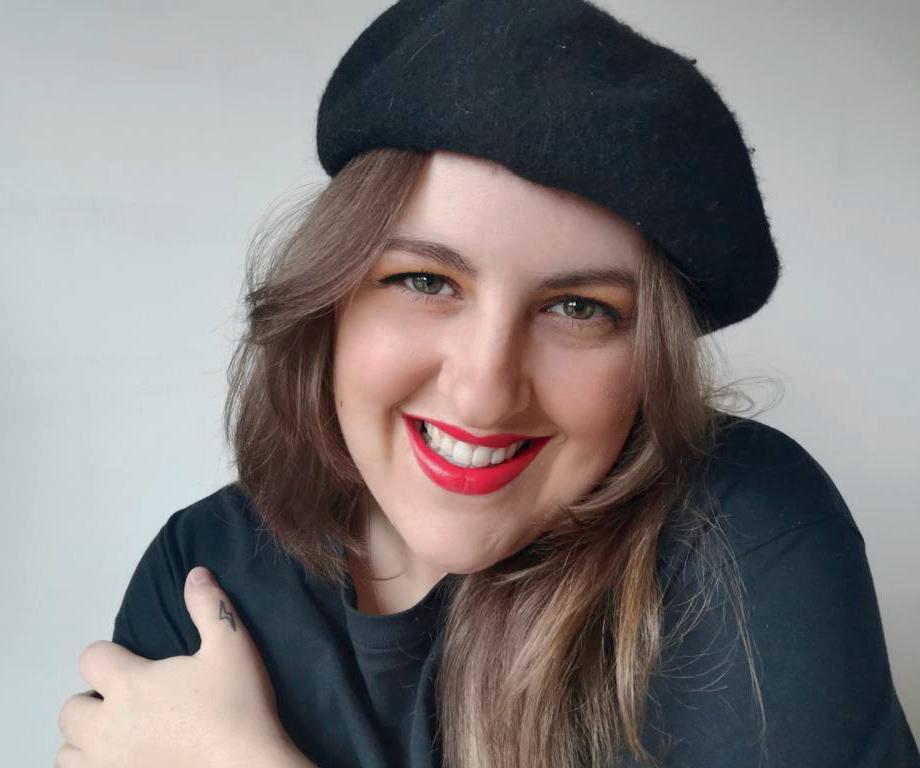
I wrote Storm that night when I got home. Since then, it’s had many guises – it’s been a country song, R’n’B song, and even a full-on dance tune. It was never quite right, until now. I’ve finally found a composition that I like and that works well. I never changed the lyrics – they’re exactly as I wrote them in 2005. I love the innocence in them, and the song reminds me of a simpler time.

At 19 I fell for someone I couldn’t have. It was a tragic time because I knew he wanted to be with me too, but he was already in a relationship with a child on the way. I wasn’t prepared to split the family unit up as I’d come from a ‘broken home’ myself, and I knew the pain that would inflict on the children, so I walked away. When writing songs, you often

look back and write about things that seem poignant and relatable - this song shows the anguish and pain surrounding a love you can never have.
A song engulfed in the flames of adultery. Inspired by a couple I know who have recently gone through a divorce, I found myself wondering what it would be like, why they would risk their relationship for a fleeting moment with someone else. You see it on TV, in movies, and in ‘real life’ all the time. ‘Loving In Sin’ is a story of lust and attraction, and the agony one can go through if you fall for that person when you’re already committed “A tear for the shame and a smile for love, now moving forward as below, so above”.
This song is a little weird. I’ve always played a jester-type roll on stage, an entertainer. I guess I learned that from my mum (as you’ll have read in last month’s issue). This was about me taking my power back: “Oh! Lucifer, I serve him not, though echoes surely show, that I serve only me, my dear,
I put on quite a show”. There are so many hidden meanings within this song that it would simply be too much to write here.
It makes me laugh. It’s playful and fun and represents freedom. Whilst I play the harlequin and perform for others, I no longer seek their approval, and I do it for me.
I have never felt confident enough to release a personal record before, but the pandemic gave me the autonomy to sit and physically write the album. ‘Alchemy’ is a piece of my heart and soul and a space where no one has been before. It’s an intimate record; a cathartic process where I wrote songs that sign off the past and give me permission to move on.
www.jadethunder.com
Ten years ago, Krysty pitched for this job. ‘I remember going I don’t really want to do another serial killer movie because my first script had been very murdery. And I’m not really interested in it. And I thought I’ll read the first chapter and say no with some authority. And then I stayed up all night reading the book because Charles Graeber’s book is so well written and so well constructed.
You keep thinking you’ve reached the peak ‘this is the moment’ and it just goes and goes and goes. And then the last third of that book, I remember thinking, this is the film.
A single mom, working-class nurse who shouldn’t have to be the one to stop a serial killer. That’s the story I want to tell.’

‘I would love to tell you that I did it on my own and I’m a genius, but the truth is that I have fantastic collaborators.
For part of my research, I got to go and work two week’s night shifts at a burn unit – shadowing nurs-
es. I got to meet the cops. I spent a lot of time with Charles Graeber and got full access to the archives and he introduced me to the real Amy and I spent a weekend with her.’
At the time, she was unsure how she was going to construct the screenplay and then Amy ‘told me that she actually had a heart condition during this time period, where she thought she was going to die, and one time she collapsed on shift and Charles (Cullen) nursed her.
I remember thinking, there’s the most important midpoint shift of the film – she’s dying. And that allowed me to understand the structure, how the story should be told.’
‘You double down in truth. That’s the only way you can really tell this story. And I think many of us feel totally overwhelmed by the systems around us, not just in America, but here too. Even in politics at the moment, you feel totally inconsequential. How can you make a change?’
And then, someone like Amy, who thinks that the
system’s wrong starts questioning how we can fit it. ‘That’s the real takeaway for me. In broken systems, you have the ability to put your hand up and say this can’t work this way, we have to make changes.’
Tobias got sent the first draft of Krysty’s script and read it on a flight. ‘Afterwards, I read Charles Graeber’s book and realised that Krysty was on the path of something original. We had the opportunity of telling a serial killer story from the perspective of the woman who stopped him. An everyday hero. And I remember thinking I have the luxury that other directors have had when I was in the writer’s chair, of giving notes and leaning back, and then realised that wasn’t possible.
Krysty and I engaged on a journey together. She would do the writing and I could read what she had done and then focus on how to humanise or make the scenes even more truthful. I could read from a distance, keep it at arm’s length and have an objectivity that really helped me.’
‘We used the whole book as a ‘bible’ on how to understand the system, but we wanted Amy’s story to be the focus. I always try to ask myself if this was a documentary, what would it look like? What scenes would present themselves? Is it coming down to the truth? Either it’s coming down to truth or it’s at least shutting out my own imagination.
I find the world around me fascinating, the truth of it and how we portray real-life events. As a screenwriter, Tobias has realised that ‘the best dialogue in films has always been in documentaries. I realised that in film school, and I was like how do we understand ‘real reality’? How do we transport that into the condensed version of fiction? Charles Graeber helped me a lot with that.’

Tobias shares the process that he has with his actors – a deal that he ‘made with Eddie and Jessica from the beginning. We would never capture them how the film wanted.
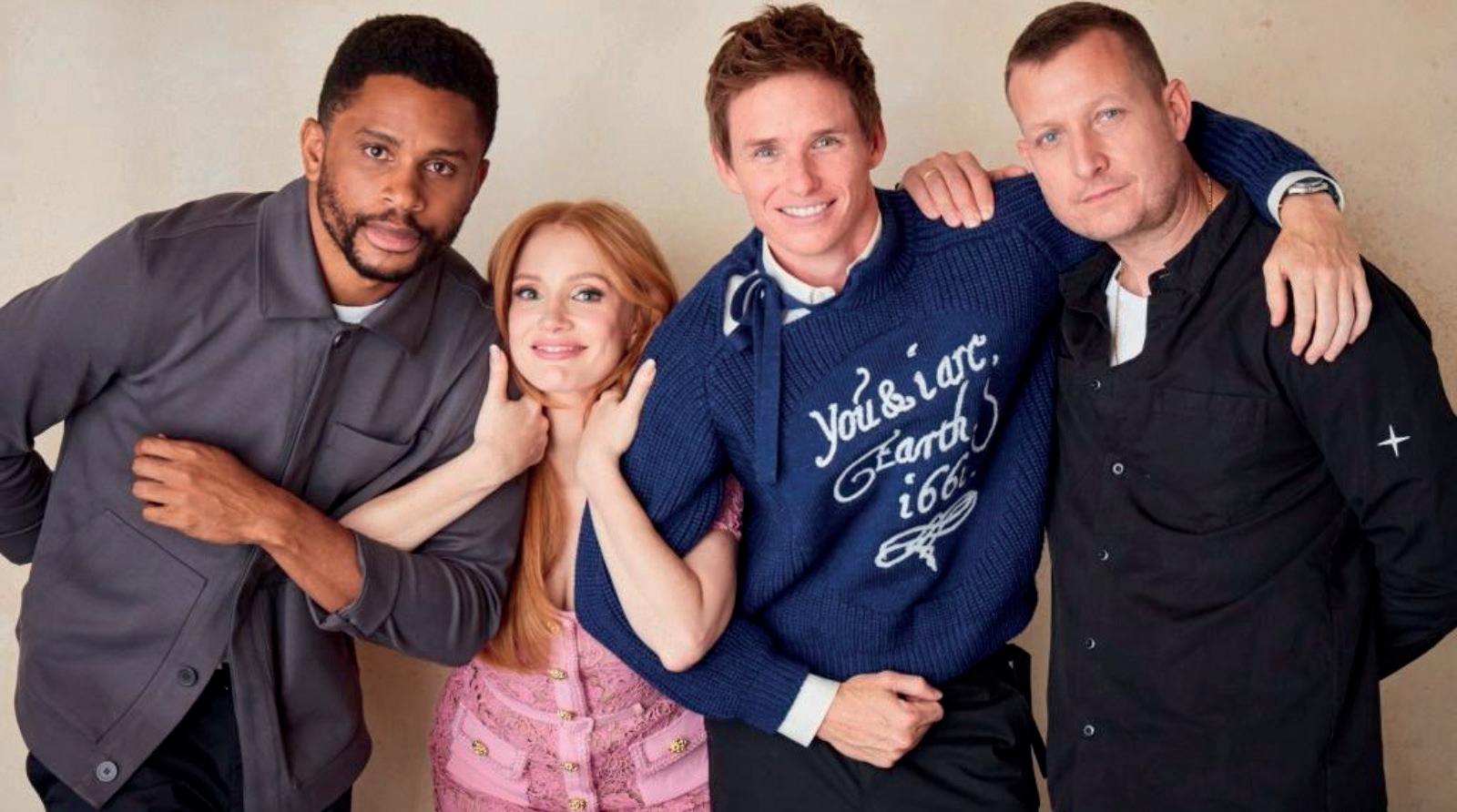
We needed to follow human beings when making a story that celebrates humanity. If we don’t allow humanity to dictate the film, but wanted technique to dictate it, then suddenly we would be slaves to another system. The only logical way to do this was to allow them to be free.’
He went on to say that he always finds it imperative to rehearse.
‘I think the only way to be totally free is to rehearse and know the material and then make decisions and open it up as we get there.’
Because of the pandemic, we were not able to meet on stage and work without masks on, but we could meet at my home. We would meet in my apartment and work for weeks in a normal everyday life environment – having tea and lunch and just talking and doing scenes, and taking it to the floor, and then going back to the kitchen table and talking about what we could improve.’
A very organic and real-life way of making a film. For more from Krysty Wilson-Cairns and Tobias Lindholm, listen to the whole ep here.
What’s a nice girl like you doing writing thrillers?
I’m going to start by blaming my mum for this, because back in the 1980s, when there were horror books with scary covers, she had a big box full of them, and she thought she had hidden them on a high shelf at the back of a cupboard. I found them and started reading them when I was about 12 or 13.
I was always a big reader of everything, but I jumped into real adult books at quite a young age. I then moved into crime and thrillers, people like Stephen King - who covers everything.
My mum used to watch horror films which I was not allowed to watch, but I still managed to. I think there was a genuine interest and intrigue in the darker side of life and that feeling of being scared but then knowing that it was just make-believe. That separates it from the true crime and horrors, for me.

I read a few things like serial killer books, and I recall reading “The Stranger Beside Me” by Ann Rule, which was about a woman who worked closely with Ted Bundy before anyone knew what he was doing. That was an interesting take on things because it was from the perspective of ‘they walk among us, and how you don’t necessarily know who the monsters are.
I also read another about Jeffrey Dahmer in the ’90s. They’re disturbing because they deal with real victims and crimes, so I moved away from it and went back into the fictional world, where everyone’s ok in the end.
What comes first, an idea, a character, etc.? Where does the process start?
It’s usually an idea. I have them cropping up all the time whenever I go anywhere. People are always asking how I get my ideas. You need something to see or hear something, and it just sparks an idea. For example, today, there was a story about a man who had not washed for half his life and died at 94 after being forced to wash. It’s that kind of thing; I started to wonder how did that happen? How did he end up living in that situation? It applies to thriller ideas too. If something creepy happens, it’s easy, especially if it’s something that’s happened to you or scared you. When you’re walking home at night, and you hear footsteps - it’s a bit of a cliché, but you start thinking about what could happen if someone attacked me. What would I do? It’s all those little, tiny sparks that turn into something else.
Was ‘The Hike’ based on your experiences? Do you have a sister?
I draw from other experiences, not usually my own. I generally observe other people’s relationships, so those siblings - the girls - were sisters. When I thought of them
as a relationship pairing, the people I was thinking of were two brothers.
The inherent storyline happens to many families, with battles over money when a parent dies, so it was a good thing to explore in a tense setting where people are stressed out.
The Hike came from an actual hike I did with friends, so it was two couples - but we all came back! That’s where I get the realistic side of things from because I’ve done that hike myself, so I know the route, the twists and turns, the possibilities, and that feeling of being isolated on a mountain. You question everything; what would happen if I fell off? How quickly would someone be able to come and help you? So, I had the idea for the story first, and I asked myself, ‘who’s story is it?’ and that’s when it became about the sisters.
I did try to have a bit of fun with it. My editor said it had a bit of a slasher feel to it. It’s a bit of escapism for me, and I like that stuff because you also have that dark undertone. The first book I wrote, “Black Wood”, was sparked by something that happened to me as a kid. A friend and I went into the woods, and boys followed us. We got out and were fine, but it was scary at the time. I thought about it for years afterwards, again, about the ‘what if,’ so I guess that was the trigger for my creativity. That could have gone a very different way.
Do you set yourself targets when writing a book?
I READ CRIME AND HORROR, YES. I DO READ SOME WOMEN’S FICTION; I THINK OF IT AS A PALETTE CLEANSER. WHEN I’VE WRITTEN SOMETHING REALLY DARK, I QUITE OFTEN READ A ROM-COM OR SOMETHING LIKE THAT JUST TO RESET.
I have to plan a lot because I still have another job. I work part-time in pharmaceuticals as a statistician, which, as it stands, is a very non-creative job. So I have to twist everything around that. I always try to find time in the morning, but that never normally works - it’s usually the evening - that’s better for me because I’m usually up late. I plan a story in detail; I know the beginning, middle, and end; I break it down chapter by chapter scenes where I have probably a paragraph for each chapter, so it’s very structured. Many people don’t like that because they think it takes the fun out of it, but for me, that bit is fun because you’re telling the story differently. Then when I get into the writing, my chapters are short1500 words or so - when I’m doing well, I can write a chapter a day quite happily, or if I’m doing very well, two chapters a day. What tends to happen is that deadlines dictate how much I write and do. I have all these grand plans to write a chapter a day with plenty of time, but what usually happens is I run out of time, and I have to write two a day until the deadline, and I’m a bit frantic.
What’s your favourite novel?
That’s a tough question. I always cite Stephen King because he was one of my biggest influences. Also, James Patterson back in the day. I don’t read his books now because, unfortunately, they became a bit formulaic, but in the beginning, they were excellent thrillers, and in some ways, I’ve followed the model in some of my books; the short chapters and cliffhangers. They are simple stories with lots of intricate plotting behind the scenes. If you talk to writers now, they will say, “oh you can’t say you like James Patterson; he gets other people to write them”, but that’s fine, he was still a massive influence at the time.
Do you read what you write or read totally different genres?
I read crime and horror, yes. I do read some women’s fiction; I think of it as a palette cleanser. When I’ve written something really dark, I quite often read a rom-com or something like that just to reset.
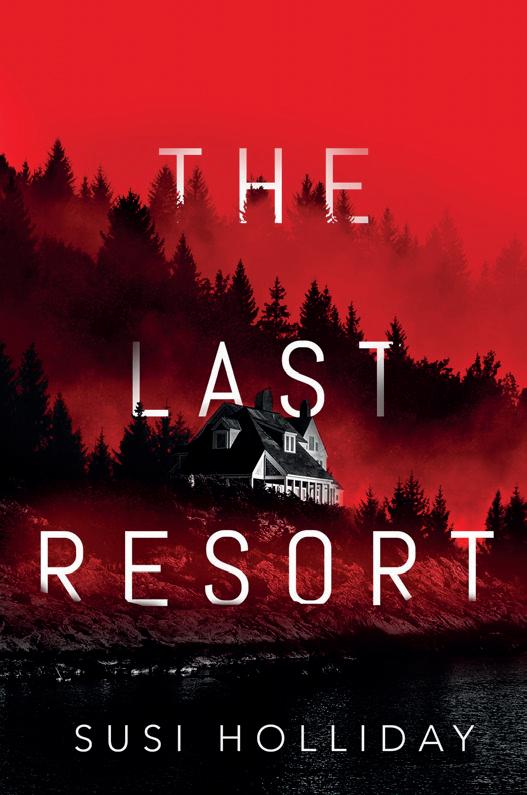
You have a part-time job, write for a living, and somehow find time to be involved in Crime Fiction Coach. How important is that to you?
Very important. I find myself mostly giving advice for free because when I was starting, I was desperate to know stuff, and there’s so much you don’t know about the publishing world. It’s not just learning how to write a book - which is hard enough - but what to do once you’ve done that.
I went to the Harrogate festival, where I met my agent, but I was really in the dark. When I started writing in 2011, there was far less information than there is now. Now, you can go on Twitter and ask them questions, and they will usually answer you. In the majority of cases, people give back, and they are happy to help. There is a limit because you don’t have time to read people’s manuscripts, which is why we set up Crime Fiction Coach, which is coaching and mentoring. It’s more about someone asking how to get a book to the end, or I’ve got an idea, how do I plan it? How do I get an agent? All these questions! People go away so happy because they
finally have answers. It’s about finding the right path for you. Everyone has the same idea that they want to get huge six-figure deals and film deals with their first book, and it doesn’t always happen. It’s about managing expectations as well as helping.

If I gave you a magic wand for your career, what would you wish for?
I’d like to write a screenplay and have it filmed in a massive Hollywood fashion. I think. Many people want that kind of thing. Regarding long-term goals, I want to stay published because that’s one of the hardest things these days. There are many authors, many books, and a lot of readers. Publishers are challenged by many things, e.g., celebrities who want to keep putting out books, and it makes money. It makes it more difficult for us - we’re already in a crowded market. I want to keep writing what I write and go full-time as an author at some point. Writing is hard, and I enjoy my current situation, where I have a part-time job, as it takes me away and gives me a break.
In the book by Baum’s ‘The Wonderful Wizard of Oz, Dorothy’s shoes are silver. For the movie, due to Technicolor, they wanted them to really pop on the big screen, so they became ruby.
Incidentally, the design of the shoe was also second choice as they were originally of Arabian influence, much like the Munchkins’ with upturned toes.
Not once is the word ‘Ewok’ spoken at any point in the Return of the Jedi. It did appear in the script and the credits at the end.
The noises made by the velociraptor in ‘Jurassic Park’ are recordings of tortoises mating; they also used horses breathing and geese hissing.
There is a scene in Grease where a waitress alighting the stairs, switches on the light with her elbow. Even though the lights turn on, she is some way off connecting with the switch.



